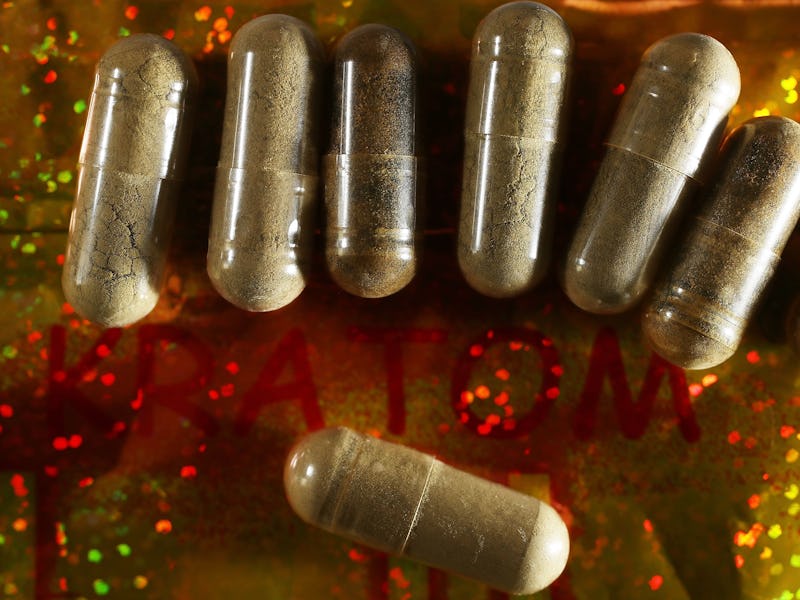Kratom advocates can let out a sigh of relief, because the wildly popular and often controversial opiate alternative might stay legal a little bit longer.
It appears that the Drug Enforcement Administration will stall its scheduled decision to label the Southeast Asian plant a Schedule I Controlled Substance. This is welcome news to people who see kratom as a way to treat pain and depression, and concerning to those who think, as the DEA has previously said, the substance could pose “an imminent hazard to the public safety.”
“I don’t have a timetable,” DEA spokesman Rusty Payne told Pain News Network. “It could be this week, could be in the future, I just don’t know.”
In August, the DEA announced that it planned on making the Schedule I decision on September 30. According to the Pain News Network this action caused online suppliers to deplete their inventory and thousands of consumers to horde the herb. A White House petition demanding that the DEA not schedule kratom as a Schedule I gathered 140,0170 signatures while a bipartisan group of 51 United States representatives requested that the Obama administration reconsider banning the drug. If kratom is listed as a Schedule I drug, it will be in the same grouping as LSD and MDMA, and labeled as being of no medical use.
But it’s the very belief that kratom is of medical use that its advocates rally around. Its active ingredient, mitragynine, creates an opioid-like effect — and when users ingest it as either a powder, pill, or in tea, they feel a sense of euphoria and sedation. Researchers have found that it can be used as a remedy for opioid withdrawal, and an increasing number of scientists are excited at the prospect of developing kratom into the “perfect painkiller.” But if kratom does become labeled as a Schedule I, it would significantly stall researchers’ ability to study the drug.
“I don’t oppose it being regulated, I just oppose Schedule I,” kratom researcher Chris McCurdy told Scientific American. “That’s where the frustration comes in, realizing you have to shut everything down because we don’t have a Schedule I license.”
Regardless, the fact that in the past two years there have been 15 kratom-related deaths and 600 calls to the nation’s poison control centers related to kratom exposure is something that the DEA can’t ignore. Long-term users could be subject to psychosis, seizures, vomiting, and hallucination. Banning kratom outright may not happen, but it’s unlikely that the conversation around the drug is going to end anytime soon.
